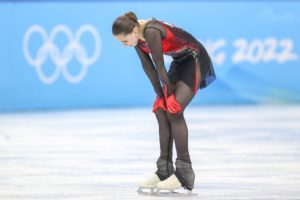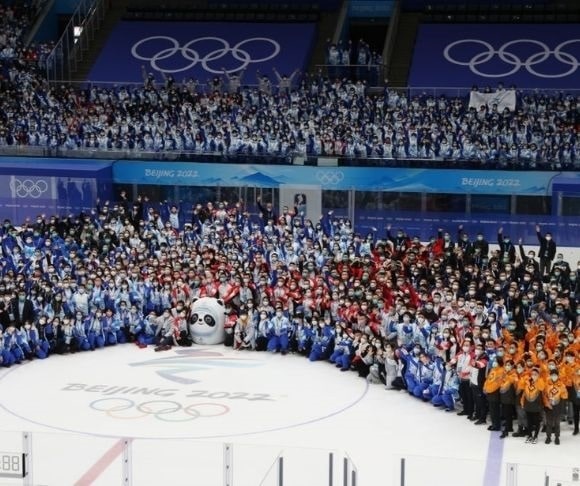The Olympic flame has been extinguished in Beijing, China, and it will be another two years before we have an opportunity to watch the best athletes in the world compete for the elusive gold medal. So, what have we learned from this year’s competition, and how did it compare to previous games?
Some things stayed the same. The Russians are still cheating. The Chinese remain frighteningly disciplined. And there is still a lot of “excellent brushing” in the almost incomprehensible sport of curling that we may not understand but can’t stop watching. We also learned that millions of people tuned out the Olympics this year.
Anybody Out There in TV Land?
 Television ratings were abysmal. Only 14 million viewers watched the opening ceremonies on NBC, down a whopping 43% from the 2018 games held in Pyeongchang, South Korea. Just a decade ago the London summer games clocked in with 40 million viewers. Some say this is a false flag – that people were watching on their browsers and smartphones instead of their flatscreens. While that may account for a portion of the ratings drop, it is unlikely to explain such a precipitous decline in viewership.
Television ratings were abysmal. Only 14 million viewers watched the opening ceremonies on NBC, down a whopping 43% from the 2018 games held in Pyeongchang, South Korea. Just a decade ago the London summer games clocked in with 40 million viewers. Some say this is a false flag – that people were watching on their browsers and smartphones instead of their flatscreens. While that may account for a portion of the ratings drop, it is unlikely to explain such a precipitous decline in viewership.
Something is wrong here.
There have been subtle changes with each passing Olympic viewing experience, and not for the better. Countries of origin were downplayed this year, giving the Olympics the look of a giant advertisement for China rather than promoting individual nationalities. Does anyone out there remember when a judge’s country of origin was made clear? It became evident that something was amiss when the Russian judges consistently marked athletes from other countries with lower scores, so that went the way of the dinosaur. But smoothing out all the nationalism also takes away the dramatic tension of the Olympics.
Instead of the traditional medal ceremony, viewers were treated to the doling out of stuffed panda bears. Somehow, watching an Olympic medalist waving a cuddly stuffed animal on the podium does not have the same impact as seeing the gold, silver, and bronze medals placed around an athlete’s neck. Sure, they got their medals later, but it just wasn’t the same for those watching.
Epic Russian Drama
Leave it to the Russians to provide a dramatic masterpiece at the games. The Russian Olympic Committee female figure skaters melted down in an epic display that would have made novelist Fyodor Dostoyevsky proud.

Kamila Valieva (Photo by Nikolay Muratkin/Anadolu Agency via Getty Images)
Controversy surrounded 15-year-old Kamila Valieva, who failed a drug test in December but was permitted to skate in the Olympic competition. Whatever convoluted reasoning went into that decision did not serve the skater well. Once her alleged doping was made public, the young athlete became unhinged and fell twice in the women’s individual free skate performance. However, her grief and tears were only a precursor of things to come.
After winning the silver medal, 17-year-old ROC skater Alexandra Trusova put on a temper tantrum for the ages. Viewers were left confused by the outburst, only to discover later that she was crushed by losing to her teammate Anna Shcherbakova. “Everyone has a gold medal, everyone, but not me! I hate skating. I hate it. I hate this sport. I will never skate again. Never,” Trusova was heard wailing in Russian as make-up streamed down her face. Her emotions were so raw, so drawn out, and so perplexing by the time it was over, the viewer needed a stiff drink.
Of course, there were some fine Olympic moments for Americans: Elana Meyers Taylor made Olympic history with her fifth bobsled medal. There was a bittersweet moment for snowboard halfpipe king Shaun White, who finally called it a day. And Nathan Chen figure-skated his way to gold after recording the highest score ever in the men’s short program.
Such as it is, the world’s finest athletes did not disappoint so much as the television coverage, and sophisticated American viewers were just not buying what NBC was selling – and perhaps for good reason.
~ Read more from Leesa K. Donner.




